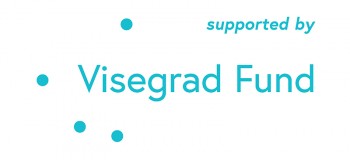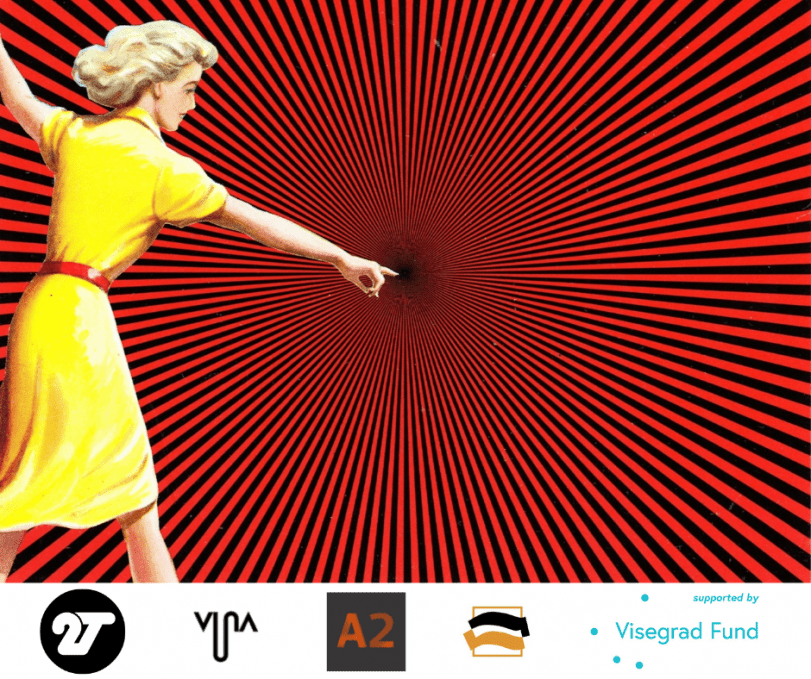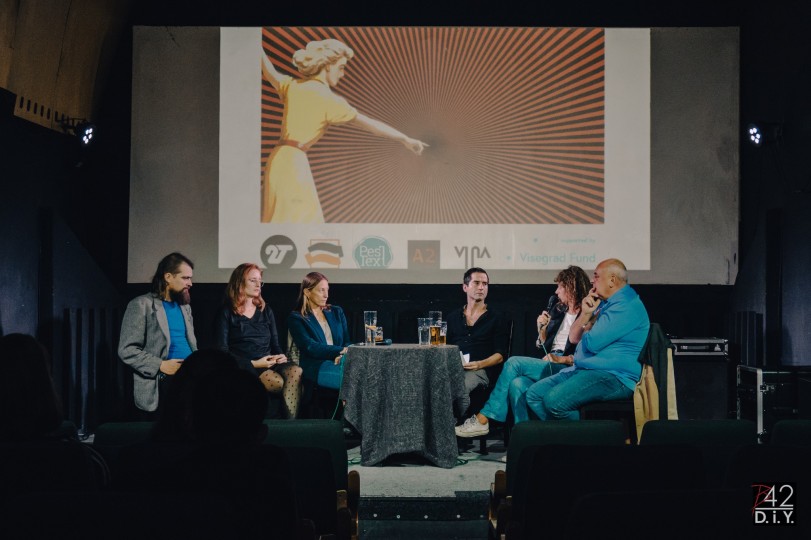Art, culture and new media in Central Europe after the pandemic
Together with a network of cultural magazines – A2 from Czech Republic, Tiszatáj from Hungary and Slovakian Vlna – we are working on a series of articles and debates addressing issues that are directly or indirectly connected with consequences of the Covid-19 pandemic in art, culture and new media.
The outbreak of the pandemic became an important caesura in the discussions on the state of culture and art in our societies. The reopening of institutions will not in itself solve culture’s problems, many of which became even more urgent under the impact of the pandemic. And although we are now returning to a certain normality, the problems that the pandemic made more visible still remain relevant and in need of solutions.
Our essays and debates address the following issues:
- the precariousness of artists and culture institution,
- the problematic nature of unrestricted mobility and the increasingly acute effects of an exploitative attitude towards nature,
- the need to revise existing planning strategies,
- the need to strengthen public institutions,
- the media crisis.
Our ambition is to help us all understand the times we are living in and to search for solutions for the future, seeing things in a broader, Central European context.
Project Output – Essays
- „The Moment of Honesty” – a discussion between curators and art critics, Natalia Sielewicz, Stach Szabłowski, Vera Zalutskaya led by Adam Mazur is a in-depth analysis on the status of art institutions in Poland and possible changes in their future.
- „Delight is key” – an essay on microphilia, practicing attentiveness to everyday city nature, instead of fast exotic tourism. The author, Ludwika Włodek, is asking how different approaches to tourism relate to one's position within the capitalist system.
- „Phantoms” – an essay on how the pandemic triggered new conspiracy theories. The author, Marcin Stachowicz, analyses critics' approach, at times full of contempt towards „freedom fighters”, and searches for the roots of today's fears.
- „Ecologies of cooperation” – Piotr Fortuna writes about Facebooks's Groups, the liveliest space in this old, supposedly dying platform.
- „Smuggling utopias” – the essay by Tomasz Szerszeń is a story about traveling during the pandemic to South America in search of social utopias and other forms of living.
- „What has happened to us?” – Renata Lis writes about the mass denial of the pandemic trauma and the necessity of revisiting this period to comprehend what has happened to and with Polish society during these challenging times.
- „Big issues in brackets” – during the first pandemic spring, a number of Czech authors already engaged in literary projects aimed at reporting on the extraordinary time and dealing with the omnipresent fear. Esseist Blanka Činátlová studies their testimonies.
- „7829 km from Rimavska Sobota” – Martin Palúch, a film expert and a director, writes about the state of Slovak cinema during the pandemic. His main focus are two films by Peter Pavlík: a documentary „7829 km from Wuhan” and a mockument „Sheep”.
- „A spectator in quarantine” – a theatre critic Veronika Darida describes the state of Hungarian theatre during the pandemic. The author looks at challanges, debates and unexploited possibilities on theatrical field brought about by Covid-19.
- „New connections” – an essay by Ágnes Básthy, Hungarian art critic, in which she advocates in favour of bottom-up, symbolic culture and undermines new technologies and their role in interpersonal relations.
Project Output – Debates
- „Elusive utopias” debate during PesText Festival in Seged took place on October 1st, 2022.
- „Return to the Future” debate during Novotvar Festival in Bratislava took place on October 6th, 2022. You can listen to it here:
-
- „There is no return” - the final debate summarizing the project. It will be held online on 25th of April 2023.
Project Output – Ebook
The ebook „Return to the Future” consists of twenty-seven essays addressing issues directly or indirectly connected with the consequences of the Covid-19 pandemic in art, culture and new media. All the essays are published in their original languages: Czech, Hungarian, Polish and Slovakian. Here you can download the ebook for free.
The ebook is available for free also at Apple Books and Google Play stores.
Partners
Dwutygodnik magazine – Polish literary art&culture born-digital biweekly launched in 2009 in Warsaw. Apart from the popular and well grounded fields of art, Dwutygodnik publishes articles dealing with digital culture, climate topics, daily life and new cultural phenomena.
A2 magazine – A2 reflects on culture in the broad sense of the word, publishing articles on social issues and politics and focuses on how these two spheres – culture and society – organically intertwine.
Tiszatáj magazine – founded in 1947, now one of the oldest and most prestigious Hungarian periodicals on literature and culture, which at the same time continues to be young in spirit, constantly reaching for new topics and new audiences.
Vlna magazine – founded in 1999 in Slovakia and has so far published 89 issues, filled with prose, poetry, essays, music and art, always searching what is new and inspiring in territories of culture and society.
Funding
The project is co-financed by the Governments of Czechia, Hungary, Poland and Slovakia through Visegrad Grants from International Visegrad Fund. The mission of the fund is to advance ideas for sustainable regional cooperation in Central Europe.
Contact
Project Coordinator
Anna Makowska



